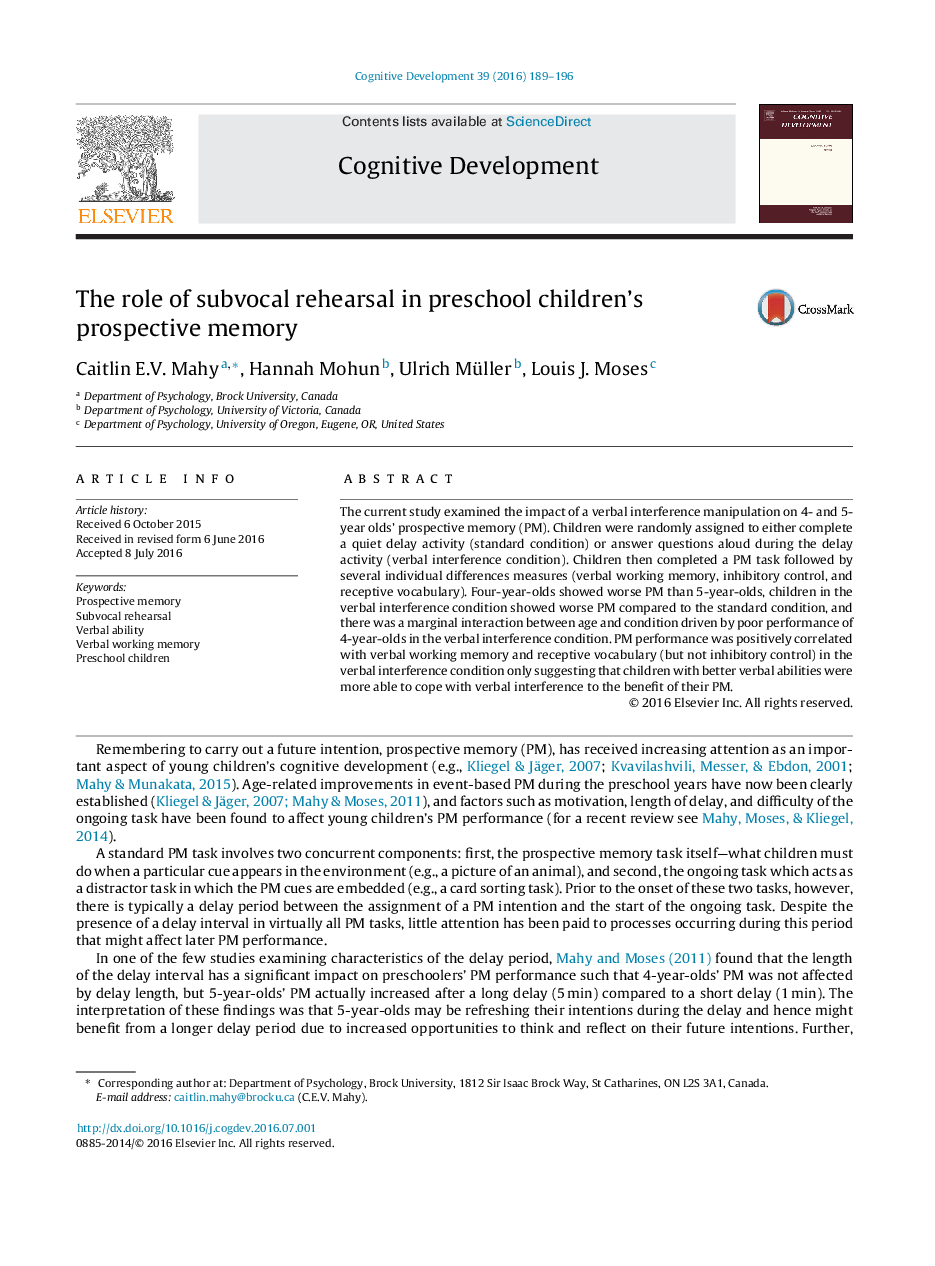| Article ID | Journal | Published Year | Pages | File Type |
|---|---|---|---|---|
| 7272467 | Cognitive Development | 2016 | 8 Pages |
Abstract
The current study examined the impact of a verbal interference manipulation on 4- and 5- year olds' prospective memory (PM). Children were randomly assigned to either complete a quiet delay activity (standard condition) or answer questions aloud during the delay activity (verbal interference condition). Children then completed a PM task followed by several individual differences measures (verbal working memory, inhibitory control, and receptive vocabulary). Four-year-olds showed worse PM than 5-year-olds, children in the verbal interference condition showed worse PM compared to the standard condition, and there was a marginal interaction between age and condition driven by poor performance of 4-year-olds in the verbal interference condition. PM performance was positively correlated with verbal working memory and receptive vocabulary (but not inhibitory control) in the verbal interference condition only suggesting that children with better verbal abilities were more able to cope with verbal interference to the benefit of their PM.
Related Topics
Social Sciences and Humanities
Psychology
Developmental and Educational Psychology
Authors
Caitlin E.V. Mahy, Hannah Mohun, Ulrich Müller, Louis J. Moses,
